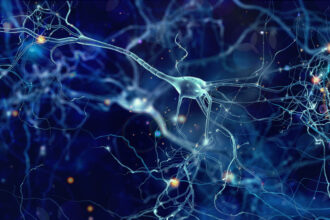A recent study from the Cellular Ageing and Senescence Laboratory at Queen Mary University of London has shed new light on a surprising role for caffeine beyond its well-known effects on alertness. Published in the journal Microbial Cell, the research investigates how caffeine interacts with fundamental cellular processes, revealing that it may help slow the ageing process at a cellular level. While caffeine is already known for its association with reduced risk of age-related diseases, such as Alzheimer’s and Parkinson’s, the specific biological mechanisms behind these effects have remained somewhat mysterious—until now.
The research team, led by Dr Charalampos (Babis) Rallis, used fission yeast as a model organism. Despite its simplicity, fission yeast shares many essential cellular functions with human cells, making it an ideal system for studying conserved biological pathways. Through their experiments, the scientists discovered that caffeine exerts its influence not by directly affecting the well-known TOR (Target of Rapamycin) signalling pathway, as previously thought, but by targeting another critical molecular system: AMPK (AMP-activated protein kinase). This protein functions as a cellular energy sensor, responding to shifts in energy availability by triggering adaptive changes in metabolism, growth, and stress resistance.
In earlier research, the same group had shown that caffeine can extend the lifespan of cells by acting on TOR, a central growth regulator that responds to the cell’s nutritional state. TOR essentially acts as a growth switch—when nutrients are plentiful, it promotes cell growth and proliferation; when nutrients are scarce, it slows down the process to conserve energy. This system has played a key role in cellular evolution for over 500 million years. However, the new findings suggest that caffeine doesn’t directly engage this system. Instead, it stimulates AMPK, which in turn modulates TOR activity indirectly, offering a more nuanced understanding of caffeine’s cellular effects.
Dr Rallis explains that AMPK functions like a “fuel gauge” for the cell, becoming active when energy levels drop. When AMPK is triggered, it initiates cellular programmes that prioritise energy conservation, DNA repair, and defence against stress—processes that are tightly linked to the ageing process. The team’s discovery that caffeine activates AMPK, therefore positions it as a substance that can promote cellular maintenance and longevity, rather than merely serving as a short-term stimulant. This adds weight to the idea that caffeine’s benefits may include promoting long-term health and resilience at the molecular level.
What makes this discovery particularly significant is that AMPK is also the target of metformin, a widely prescribed diabetes medication that is currently being explored for its potential to extend human lifespan. Like caffeine, metformin activates AMPK, setting off a cascade of protective cellular responses. Moreover, the effects of caffeine appear to align with other longevity-promoting interventions, such as caloric restriction and exercise, both of which naturally stimulate AMPK as part of the body’s response to energetic stress. Thus, caffeine may be acting as a dietary mimic of these age-defying practices.
The team’s findings also suggest that caffeine’s impact on AMPK extends to key cellular activities, including growth regulation, DNA damage repair, and resistance to environmental stressors. All of these are crucial for maintaining cell function as organisms age. According to Dr John-Patrick Alao, the postdoctoral researcher who led the study, these results help explain the consistent links between moderate caffeine consumption and improved health outcomes observed in epidemiological studies. They also hint at new therapeutic avenues, where the beneficial aspects of caffeine might be harnessed more precisely, either through diet, lifestyle changes, or novel pharmaceutical compounds.
So, the next time you reach for your morning coffee or afternoon tea, you might be doing more than just sharpening your mind or shaking off fatigue. This daily ritual can help your cells remain youthful, robust, and resilient in the face of life’s stresses. While further research is needed to translate these yeast-based findings into human biology, the study offers an exciting glimpse into how something as familiar as caffeine might become a tool in the science of healthy ageing.
More information: Charalampos Rallis et al, Dissecting the cell cycle regulation, DNA damage sensitivity and lifespan effects of caffeine in fission yeast, Microbial Cell. DOI: 10.15698/mic2025.06.852
Journal information: Microbial Cell Provided by Queen Mary University of London








